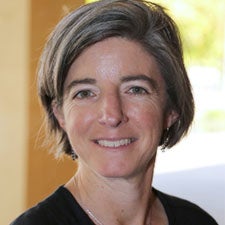View the Report
Jump to All Downloads & LinksThe Central Valley, encompassing Fresno, Kings, Madera, Mariposa, and Tulare Counties, is an agriculturally rich region in California with a population of 1.8 million. Access to health care remains a significant issue in the Central Valley, particularly in behavioral health services and primary care. The region also faces challenges in attracting and retaining health care professionals.
To understand the health care landscape better, the California Health Care Foundation (CHCF), in partnership with NORC at the University of Chicago, conducted a statewide survey in late 2023, with an oversample of 1,525 Central Valley residents. This survey provides a statistically representative view of the region’s health care experiences and concerns.
Key findings include these:
High health care costs and medical debt are particularly acute issues in the Central Valley, especially among those with low incomes and Latino/x residents. Reducing how much people pay for care is one of the top health care priorities of Central Valley residents. For example, more than 6 in 10 Central Valley residents (63%) report skipping or delaying care due to cost. This is significantly higher than Californians in the rest of the state (52%). Nearly half of Californians in the Central Valley (48%) have medical debt, and 56% of Central Valley residents with low incomes and Latino/x residents report medical debt. Finally, 86% of Central Valley residents say reducing the amount of money that people pay for care is “extremely” or “very” important for the legislature and governor to focus on in the coming year.
A significant proportion of Central Valley residents report challenges accessing health care, especially for mental health concerns. Most Central Valley residents think their community does not have enough health care providers. For example, among the 20% of Central Valley residents who tried to make a mental health appointment, 62% report waiting longer than they thought was reasonable to get an appointment. Among the 51% of Central Valley residents who tried to make an appointment for physical health care, half (50%) say they had to wait longer than reasonable. Half or more of Central Valley residents think their community does not have enough providers, especially mental health providers (56%).
Most Central Valley residents are concerned about the health effects of weather and environmental factors. Nearly 6 in 10 Central Valley residents (58%) and about two in three Central Valley residents with low incomes (67%) and Latino/x Central Valley residents (64%) are “very” or “somewhat” worried about the effect of weather and environmental factors — such as extreme heat, floods, wildfires, and air quality — on their or a family member’s physical or mental health.
Nearly half of Californians in the Central Valley report waiting for authorization from their health insurers before receiving doctor-approved care. Central Valley residents are more likely to report waiting for insurance authorization of a treatment, procedure, or medicine prescribed by their doctor than residents in the rest of the state (47% vs. 39%).
Californians in the Central Valley are more likely to have experienced a change in health insurance coverage in the past year than Californians in the rest of the state, often resulting in increased costs of coverage or care. Three in 10 Californians in the Central Valley (30%) and one in three Latino/x Central Valley residents (33%) report experiencing a change in health insurance coverage in the past year.
Authors & Contributors

Jen Joynt
Jen Joynt is an independent health care consultant based in Berkeley, California. Her areas of expertise include quality of care; hospital organization, strategy, and operations; health care workforce trends; and the California health care marketplace. She has authored several reports and policy briefings.


